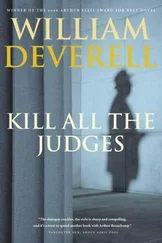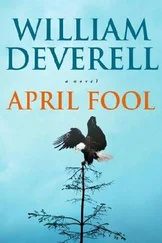William Deverell - Snow Job
Здесь есть возможность читать онлайн «William Deverell - Snow Job» весь текст электронной книги совершенно бесплатно (целиком полную версию без сокращений). В некоторых случаях можно слушать аудио, скачать через торрент в формате fb2 и присутствует краткое содержание. Год выпуска: 2009, ISBN: 2009, Издательство: Random House LLC, Жанр: Криминальный детектив, на английском языке. Описание произведения, (предисловие) а так же отзывы посетителей доступны на портале библиотеки ЛибКат.
- Название:Snow Job
- Автор:
- Издательство:Random House LLC
- Жанр:
- Год:2009
- ISBN:9781551993225
- Рейтинг книги:5 / 5. Голосов: 1
-
Избранное:Добавить в избранное
- Отзывы:
-
Ваша оценка:
- 100
- 1
- 2
- 3
- 4
- 5
Snow Job: краткое содержание, описание и аннотация
Предлагаем к чтению аннотацию, описание, краткое содержание или предисловие (зависит от того, что написал сам автор книги «Snow Job»). Если вы не нашли необходимую информацию о книге — напишите в комментариях, мы постараемся отыскать её.
Snow Job — читать онлайн бесплатно полную книгу (весь текст) целиком
Ниже представлен текст книги, разбитый по страницам. Система сохранения места последней прочитанной страницы, позволяет с удобством читать онлайн бесплатно книгу «Snow Job», без необходимости каждый раз заново искать на чём Вы остановились. Поставьте закладку, и сможете в любой момент перейти на страницу, на которой закончили чтение.
Интервал:
Закладка:
The cabinet room had been set up as a crisis centre, several plasma screens, images dancing on them, but volumes down. A server followed Finnerty with trays of sandwiches, and he joined the chow line, everyone hungry but Lafayette, who was what you’d call a dainty eater, and the RCMP commissioner, who wasn’t showing much of an appetite.
An aide thrust a note at Finnerty. The CEO of Alta International, urgent, please call. Quilter was probably going berserk. “I’ll get back to him.”
Finnerty tried for a meaningful look at DuWallup, but saw he was listening to Commissioner Lessard, who had just got off a secure line with his explosives people.
“Semtex, they think. One of those super-IEDs that are showing up in the Middle East, explosive penetrators, copper-jacketed, directional, effective to fifty metres.”
“Pretty sophisticated,” DuWallup said.
“We’re not dealing with amateurs. These are trained terrorists.”
“Run it by us again, Commissioner, how Mr. Erzhan vanished on us.” Lafayette, sitting back, examining his fingernails.
Lessard summarized a written report: “Thursday, yesterday, at eight-fifteen hours, Abzal Erzhan left home with a bag lunch in a satchel, as he has done every school day for the last eight years. He’s a teacher in a local secondary school — mathematics, science, and physical education. Earned his certificate teaching leadership skills at an immigration centre. Industrious man.”
“Age?” Finnerty asked.
“Thirty-five. Wife, two children. It’s a twenty-five-minute walk to his school, but he didn’t show up. We have two confusing accounts that suggest a car stopped for him. We’ve instructed his wife not to talk to the press, or to anyone, as it could compromise the investigation. There’s no basis for holding her, no sign of bomb making in the house or its attached garage, no traces of Semtex. So far.”
“Yes, but to get back to Abzal.” Lafayette saw it his duty to take on the role of cross-examiner — Finnerty clearly lacked the energy to resume the reins. “You had surveillance on him yesterday?”
“Eighty per cent coverage. We couldn’t follow him on foot everywhere.”
“Of course. You were trying not to be too obvious. So he slipped away during the twenty per cent non-surveillance?”
“I suppose so.”
“And knowing that, knowing the standard scenic route to speed dignitaries to the airport was along Bronson and Colonel By, you didn’t alter it for the Bhashie cavalcade, didn’t check it, sweep it … I hope you don’t mind these questions.”
“I’m not sure what you’re implying, sir.” Lessard was getting testy.
“I don’t understand why you didn’t warn us immediately that Abzal Erzhan had slipped surveillance.”
“But I did. After we made every effort to track him, I alerted Justice Minister DuWallup.”
“Pretty late in the day, though.” DuWallup, a pathetic attempt to smile.
“Well, sir, I believe you called back that evening and instructed us not to depart from the security program, except to double the escort.”
Everyone was staring at red-faced DuWallup. He didn’t once look at Finnerty, who was sliding down in his seat, ready to crawl under the table. But Lafayette, smooth as chewed sealskin, said, “Obviously one of those misunderstandings that occur after a long, taxing day.”
Commissioner Lessard didn’t buy that. “I assumed he’d conferred with the prime minister.”
Finnerty felt his chest tightening through a long moment of silence.
“No, I didn’t discuss it with the P.M.” DuWallup was taking one for the Gipper, he wasn’t going to weasel out the prime minister of Canada. “He was exhausted. I took it on myself to deal with the situation.” He was looking appropriately hangdog.
Lafayette retreated from that prickly topic by asking if Erzhan had entertained any visitors of interest while under surveillance. That information was being collated, Lessard said, as were telephonic records.
Lafayette led the commissioner to the door, effusive in his thanks: the RCMP was correct in everything it did, the government could be counted on to stand behind its fabled federal police.
Finnerty caught DuWallup’s eye, nodded. He would owe big time for this. An appeal court appointment. High commissioner to New Zealand.
The door secured, Lafayette said, “Awkward matter. The press are going to wonder why the public — and our important guests — weren’t warned.”
“Who’s to say they weren’t?” The PMO’s chief, gnomelike E.K. Boyes. “Given there were no survivors.” Finnerty’s brain they called him.
Finnerty recoiled a little from the gnome’s cold, deadpan logic, but after a moment’s hesitation told his staff: “See what you can come up with.” His publicity wonk took that to mean, rightly, that he was to get something on the drawing board fast, so he got up and left.
“Let’s get an update.” Finnerty, with teeth-gritting effort, was taking back the gavel. “Tell me, Gerry, is there anyone at risk in Bhashyistan if things go sour? Any Canadians there?”
“My people are looking into that.”
“Tell them to stop looking.” Thiessen indicated one of the TV screens. A press conference. In the background, the Alta International logo, in the foreground, its boss, A.J. Quilter, who, as the volume was raised, was sounding irritated, raw. “Vice-president for foreign development, two from our legal team, a geologist, and an accountant, a total complement of five men. I am not suggesting they’re in harm’s way. Our worry is that we haven’t been able to make contact since early this morning.”
A reporter: “How would you normally make contact?”
“Satellite phone.”
Another reporter: “Can you tell us how long they’ve been there, what they’re doing?”
“They’ve been there nearly a week. It’s not news that we’ve been in delicate negotiations with the Bhashyistan government.”
“Sir, have you enlisted the aid of the federal government?”
“I’m still waiting for the prime minister to return my call.”
7
Margaret and Pierette were donning their coats to leave for the Hill, but Arthur was slow to join them — it wasn’t easy to pull away from the set. He wondered at the presumption of this fellow Quilter — he was waiting for the P.M. to call. Prairie tan and jutting chin, the fearless look of the self-assured.
Arthur doubted if satellite phones could be jammed. Maybe the batteries had run down. Maybe these unfortunates — already dubbed by the press the Calgary Five — had been ordered to surrender their phones. They’d been staying at the Igorgrad Grand, the city’s one prestige hotel.
The news outlets didn’t have much recent footage from Bhashyistan. One of the networks had found a still of that hotel, a drab, square, fifteen-storey box on a riverbank. Some clips from a ten-year-old National Geographic travelogue of the mountains-markets-and-mules variety. Mad Igor presiding at a viewing stand: broad, bemedalled chest and flat, pocked, crabbed face.
Pierette was holding his coat. “You coming, Counsellor?”
Arthur followed them to the elevator, shrugging into his coat, straightening his tie. A headache was creeping up on him, born of the strain of suppressing recent memory, the carnage, the horror, those ten blackened bodies — a scene that was bound to surface in dreams.
Pierette pedalled off on her bicycle, blowing Margaret a kiss, calling to Arthur: “See you later, litigator.”
The weather was still crisp but kinder, and they decided to walk, they needed the air, the peace of this suddenly quiet city. As they strolled through the leaf-littered, church-thick streets below Wellington, Arthur brought out his new cellphone, with its alarming array of gimmickry. He dialed his travel agent one-handed, with his thumb (he had practised this), and put the phone to his ear, imagining himself as cool, modern, online.
Читать дальшеИнтервал:
Закладка:
Похожие книги на «Snow Job»
Представляем Вашему вниманию похожие книги на «Snow Job» списком для выбора. Мы отобрали схожую по названию и смыслу литературу в надежде предоставить читателям больше вариантов отыскать новые, интересные, ещё непрочитанные произведения.
Обсуждение, отзывы о книге «Snow Job» и просто собственные мнения читателей. Оставьте ваши комментарии, напишите, что Вы думаете о произведении, его смысле или главных героях. Укажите что конкретно понравилось, а что нет, и почему Вы так считаете.












